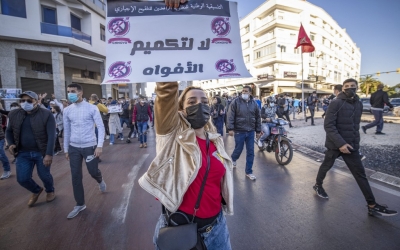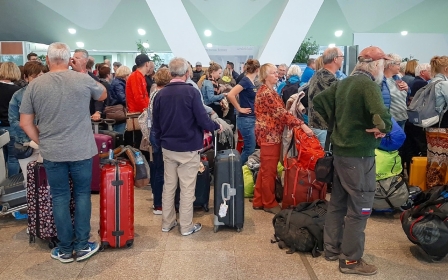Seven in 10 young Moroccans want to emigrate, report finds

Seven out of ten young Moroccans say they would be happier if they moved abroad, according to a recent study, giving the North African nation the highest percentage amongst Arab countries of youth seeking to emigrate.
The report, published by the National Human Development Observatory, a Moroccan organisation, in partnership with the UN's Development Programme (UNDP), also found that seven in ten Moroccans were reluctant to marry and start families.
Unemployment in Morocco affects around 12 percent of the population, but is much higher among certain demographics, including youth (31 percent), university graduates (18.7 percent) and women (16.5 percent).
Nearly half of the population is under 30, a statistic seen across many countries in the Middle East and North Africa.
Morocco is at the crossroads of one of the most frequently used transit routes to Europe, and its coastguards regularly rescue people attempting to migrate via the Mediterranean Sea.
In 2019, the country stopped 30,000 people from attempting to cross into Europe and busted 60 trafficking networks.
Most of those risking this sea route are people from sub-Saharan Africa seeking to reach Europe through Spain, which is only 20 kilometres from Morocco.
But Moroccan youth themselves are also being drawn to Europe, due to the lack of economic opportunities they have in their home country.
Morocco's King Mohammed VI introduced a new government in October, led by Aziz Akhannouch, a billionaire tycoon close to the palace.
Moroccan authorities have repeatedly pledged to improve the conditions of young people in the country, but struggle to tackle a number of issues, including a high unemployment rate.
Still, after Covid-19 ravaged Rabat's economy, causing it to shrink 6.3 percent in 2020, the International Monetary Fund expects a growth of 5.7 percent this year.
Middle East Eye delivers independent and unrivalled coverage and analysis of the Middle East, North Africa and beyond. To learn more about republishing this content and the associated fees, please fill out this form. More about MEE can be found here.





